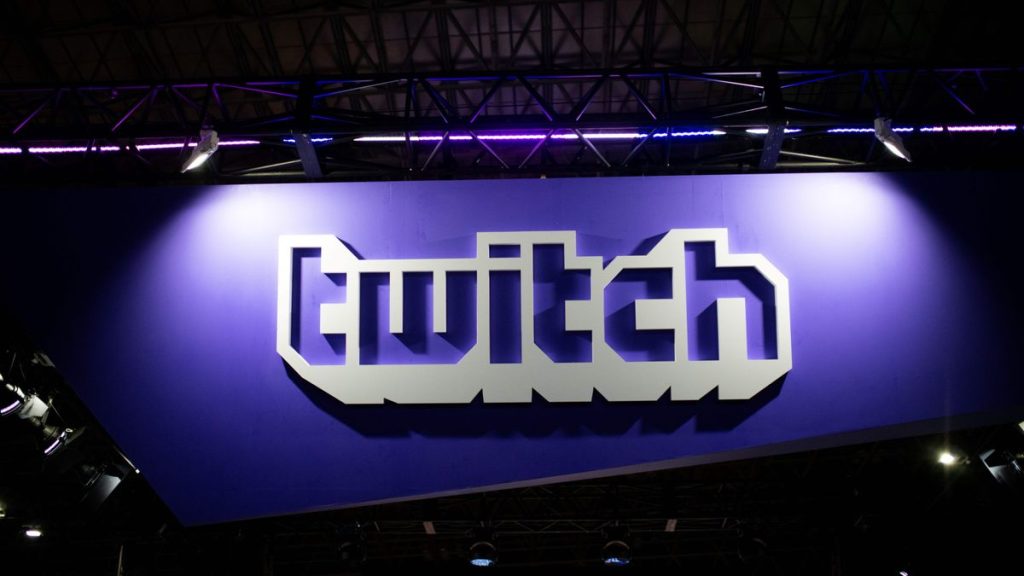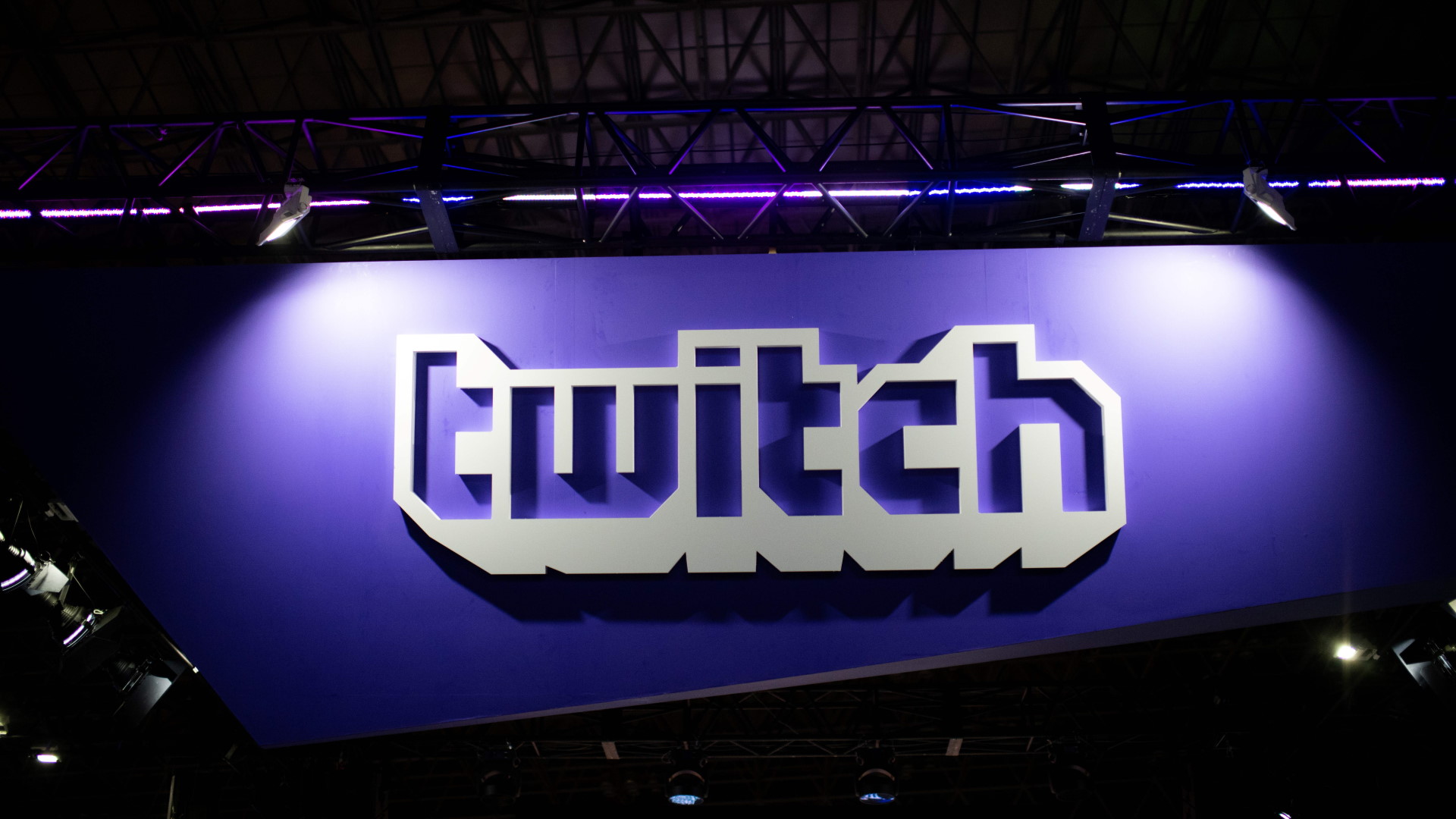
Twitch now requires a warning label for ‘politics and sensitive social issues,’ and it’s going over exactly as well as you’d expect
published 2 November 2024
The new policy follows weeks of back-and-forth complaints about Islamophobia and antisemitism on the platform.

Twitch has added a new category to its content classification guidelines covering “politics and sensitive social issues,” meaning that streams discussing topics such as “elections, civic integrity, war or military conflict, and civil rights” will need to labelled as such to ensure viewers don’t accidentally stumble into them and be exposed to content they might find offensive.
Content classification labels are required for streams that don’t violate Twitch’s community guidelines but contain material that might not be “appropriate for everyone, including younger viewers.” In the past, that’s included things like M-rated games, sexual themes, drug use, violence, and gambling. Now added to that list is a new, vaguely-defined category encompassing “discussions and debates about political or sensitive social issues.”
The new content category comes in the wake of an ugly month for Twitch. Popular streamer Zack “Asmongold” Hoyt was suspended for two weeks following a racist tirade in which he described Palestinians as “terrible people” who come from “an inferior culture.” (He’s back now, by the way.) A week later, Twitch banned several Arab streamers over a month-old TwitchCon panel in which they ranked other streamers on an “Arab” to “loves Sabra” scale, Sabra being a brand of hummus owned by Israeli-American partnership.
At around the same time, it came to light that Twitch had quietly stopped taking email-verified signups from Israel and Palestine more than a year prior. Twitch quickly apologized for the “unacceptable miss and the confusion it has caused,” saying it initially disabled signups with email verification in the wake of the Hamas attack on Israel on October 7, 2023 “to prevent uploads of graphic material,” and somehow forgot to switch them back on.
The events put Twitch’s policies under the microscope, as the platform was accused by various parties of antisemitism, Islamophobia, and/or gross negligence or straight-up incompetence.
Spurred by those accusations, Twitch CEO Dan Clancy posted a message today saying “there is no place on Twitch for racism, hatred, or harassment of any kind, including antisemitism and Islamophobia,” and that when Twitch discovers content that breaks its rules, it takes “immediate enforcement action.”
“Millions of streamers, with a wide variety of views and perspectives, spend time on Twitch,” Clancy wrote. “We recognize that some content, while allowed on our service, may be objectionable to some members of our community. The views shared by streamers on Twitch are not the views of Twitch nor are they my personal views.
“We’re grateful for the feedback and input from our community. Our safety approach continues to build and evolve, as our service grows. We want to ensure that anyone can find their place on Twitch, and remain committed to ensuring that hate and harassment have no place here.”
The biggest gaming news, reviews and hardware deals
Keep up to date with the most important stories and the best deals, as picked by the PC Gamer team.
It’s a very standard, bland “zero tolerance” sort of thing, but it does come alongside some new rules—or, more specifically, the new content category for “politics and sensitive issues,” which will require classification labels on streams dealing with such topics. Examples cited by Twitch include:
- Streams featuring former or current political officials if the content includes discussions with these individuals around public policies
- Live coverage or commentary on elections, civic processes, or election-related disputes
- Livestreams of protests, rallies, or civil unrest related to civil rights issues or government policies
- Discussing military conflicts, foreign policy decisions, or national security matters
- Discussing ideological or socio-political views on topics like gender, race, sexuality, or religion
- Discussing legislation related to a sensitive social issue such as reproductive rights, LGBTQ+ rights, or immigration
Content labels will not be required for streams “containing informational or educational content that aim to share knowledge in a neutral, fact-based manner, rather than engaging in any kind of advocacy for an issue or candidate.” Streams with “intermittent mentions of politics, politicians, or sensitive social issues” are also exempt from the labelling requirements.
Right off the top, the whole thing looks impossibly confusing and far more likely to make things worse than better. Does neutral, “educational content” include topics such as, for instance, the rise of fascism in the US or the attempted overthrow of the rightfully elected government on January 6, 2021, or does that fall under “commentary on election-related disputes?” Does a recitation of proposed anti-trans laws in Utah qualify as a “neutral, fact-based” presentation, or is that a discussion of a sensitive social issue? Who decides, and on what basis?
I don’t think content guidelines are an inherently bad thing, but these guidelines feel like a rushed, scattershot attempt to be seen “doing something” that ultimately adds up to nothing more than a cop-out. What is neutrality in the face of rising white supremacy and LGBTQ+ hatred? What is ideological when talking about a right to exist?
The response to the announcement of the new classification labels is predictably chaotic and widely unhappy. There are numerous calls on social media for popular streamers who focus on political topics to be banned (and accusations that Twitch is simply rolling out this new classification category to avoid doing so), predictions that antisemitism will become more widespread under the protection of “sensitive content,” and LGBTQ+ streamers asking if they’re going to have to apply warning labels to streams in which they simply talk about their lives, experiences, and identity.
Fr I am fuming at twitch rn. They are literally calling my existence, who I am and what I’ve been through a “sensitive/political” topic. I fucking deserve to be able to talk about my hysterectomy and reproductive health and freedom as well as being nonbinary and pansexual freelyNovember 1, 2024
“I had to have a hysterectomy at 25 due to severe debilitating endometriosis so reproductive health, rights, and freedom are something I feel I should be able to speak freely about as well since it is part of who I am,” streamer SerpentineCiCi told PC Gamer. “I also have been an advocate for the Center for Reproductive Rights as a charity and have used Twitch to raise money for them in the past.”
Some streamers are also worried about the potential revenue impact: Advertisers can, and often do, avoid streams with content warning labels, regardless of the context in which they’re applied.
I have a strong feeling that this new content category is going to miss the mark badly, and that modifications, or possibly a complete do-over, will happen sooner rather than later. It’s happened before: In December 2023 Twitch relaxed its sexual content guidelines to allow for “artistic depictions of nudity,” then rolled back the change just two days later when it figured out that “artistic” means different things to different people.
Andy has been gaming on PCs from the very beginning, starting as a youngster with text adventures and primitive action games on a cassette-based TRS80. From there he graduated to the glory days of Sierra Online adventures and Microprose sims, ran a local BBS, learned how to build PCs, and developed a longstanding love of RPGs, immersive sims, and shooters. He began writing videogame news in 2007 for The Escapist and somehow managed to avoid getting fired until 2014, when he joined the storied ranks of PC Gamer. He covers all aspects of the industry, from new game announcements and patch notes to legal disputes, Twitch beefs, esports, and Henry Cavill. Lots of Henry Cavill.
Squid Game season 2’s first trailer shows player 456 returning to the lion’s den, as the creator basically confirms an English-language adaptation
Asmongold’s self-improvement kick sees him clean biohazard kitchen, evict a wolf spider, then declare himself an ‘expert’ on racism
The long promised online co-op update for The Binding of Isaac Rebirth is only weeks away
Most Popular
-
1Best graphics card for laptops in 2024: the mobile GPUs I’d want in my next gaming laptop
-
2Best mini PCs in 2024: The compact computers I love the most
-
3Best 14-inch gaming laptop in 2024: The top compact gaming laptops I’ve held in these hands
-
4Best Mini-ITX motherboards in 2024: My pick from all the mini mobo marvels I’ve tested
-
5Best RAM for gaming in 2024: I’ve tested the best DDR4 and DDR5 RAM to find the right kits for you
-
1Call of Duty: Black Ops 6 review
-
2Lemokey G1 review
-
3Slitterhead review
-
4Planet Coaster 2 review
-
5Secretlab Titan Evo NanoGen Edition review
Source: https://www.pcgamer.com/